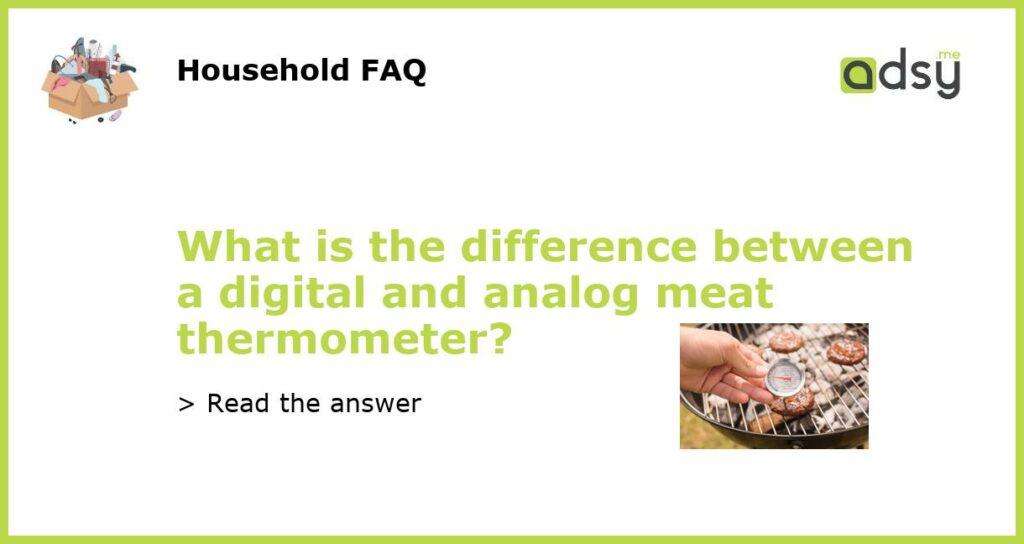Digital vs. Analog Meat Thermometers: Which One Should You Use for Cooking?
Meat thermometers are essential tools in the kitchen, especially when cooking meat. They can tell you if your steak, roast, or poultry is cooked properly, eliminating the guesswork and ensuring your safety. When choosing a meat thermometer, you can opt for a digital or an analog one. But what’s the difference between the two? Let’s find out.
Analog Meat Thermometers: Pros and Cons
Analog or traditional meat thermometers have been around for ages. They consist of a metal stem with a temperature sensor at the end and a dial or gauge that shows the temperature. The stem is inserted into the thickest part of the meat while it’s cooking, and the gauge indicates the temperature by moving a needle.
One of the advantages of analog meat thermometers is that they are cheap and widely available. They don’t require batteries, and they are easy to use. However, they have some downsides. First, they can be inaccurate, especially if the needle gets stuck or if the gauge is not calibrated correctly. Second, they take longer to give a reading, which means you have to leave the oven or grill open for a while, letting out heat and affecting the cooking time.
Digital Meat Thermometers: Pros and Cons
Digital meat thermometers, on the other hand, use electronic sensors to measure the temperature. They have a metal probe that is inserted into the meat and a digital display that shows the reading. Some models also come with alarms or timers that notify you when the food is ready.
The main advantage of digital meat thermometers is their accuracy. They can give you a precise temperature within seconds, allowing you to cook your meat to perfection. They are also easy to read and can be programmed to show the temperature in either Fahrenheit or Celsius. However, they are more expensive than analog thermometers, and they require batteries, which can be a hassle to replace. Some models also have fragile probes that can break or malfunction, rendering the thermometer useless.
Which One Should You Choose?
When it comes to choosing between a digital and an analog meat thermometer, it all comes down to your needs and preferences. If you’re on a tight budget and don’t mind a bit of inaccuracy, an analog thermometer might be a good option for you. If you want precision and convenience and don’t mind paying a bit more, go for a digital thermometer.
Whatever you choose, make sure to follow the manufacturer’s instructions and calibrate the thermometer before using it. Also, keep in mind that meat thermometers are not designed to be left inside the meat while it’s cooking. You should remove the thermometer once you’ve got a reading to avoid damaging the probe or affecting the taste and texture of the meat.






